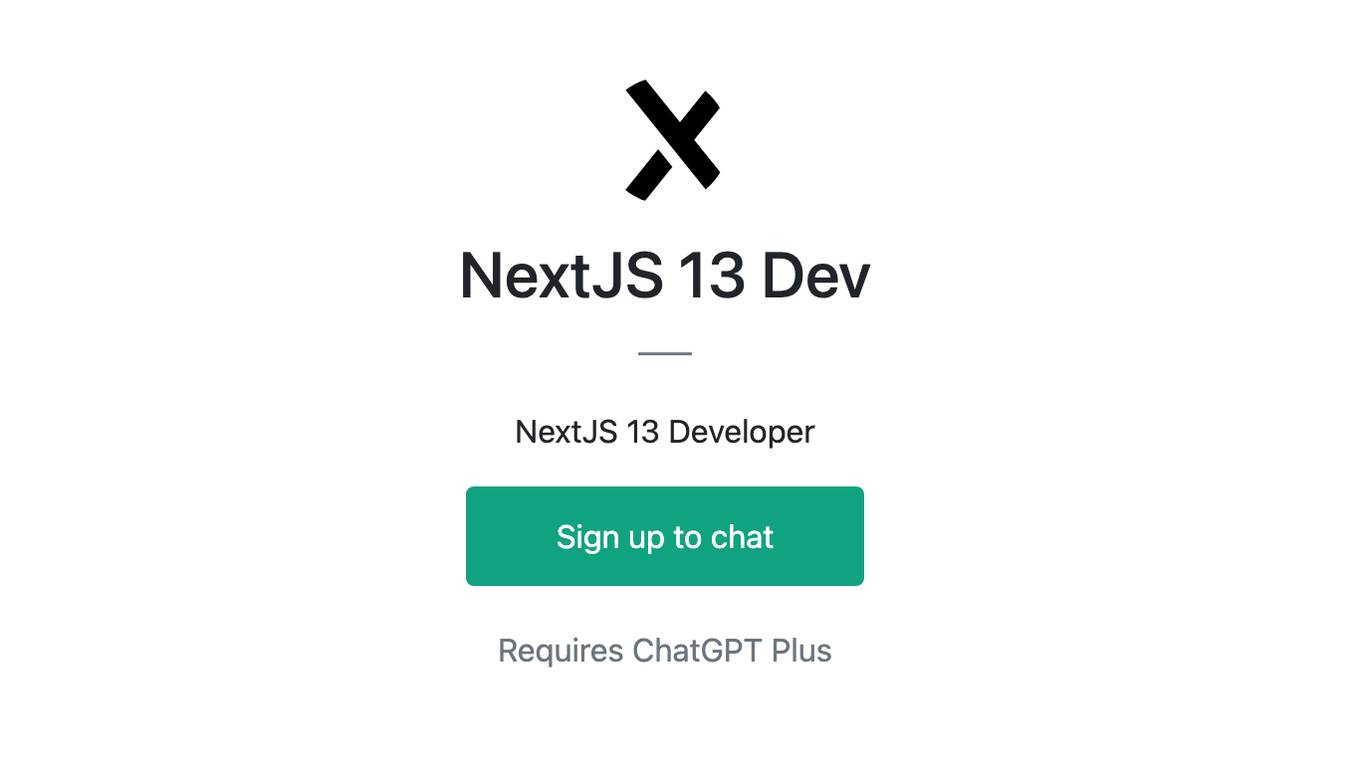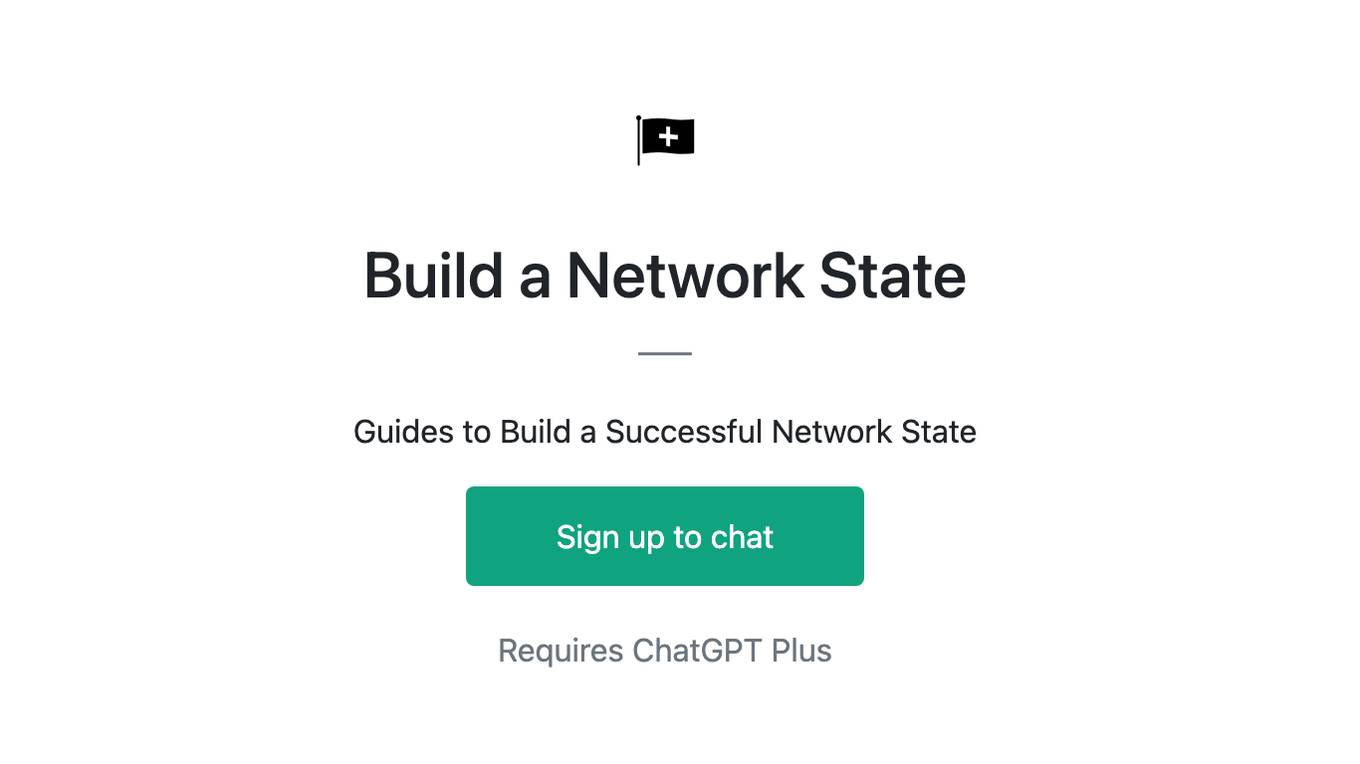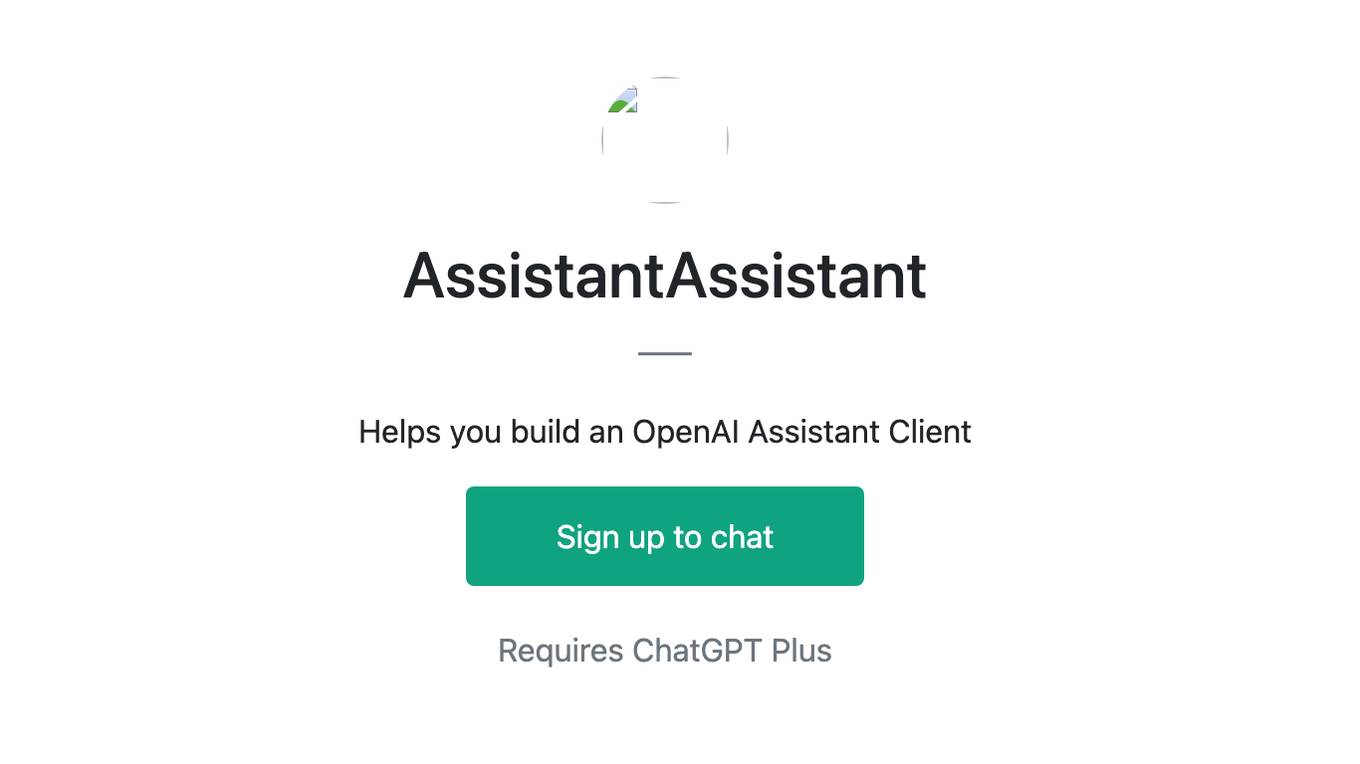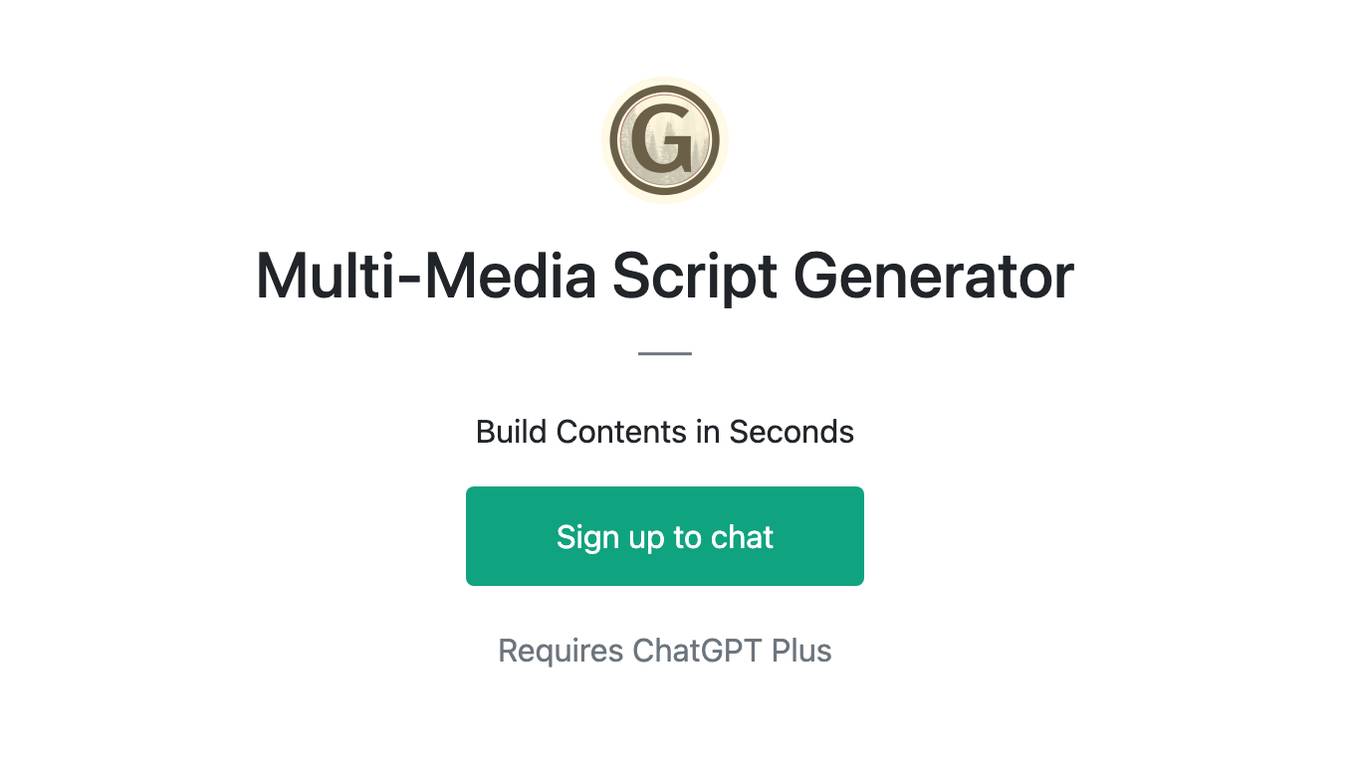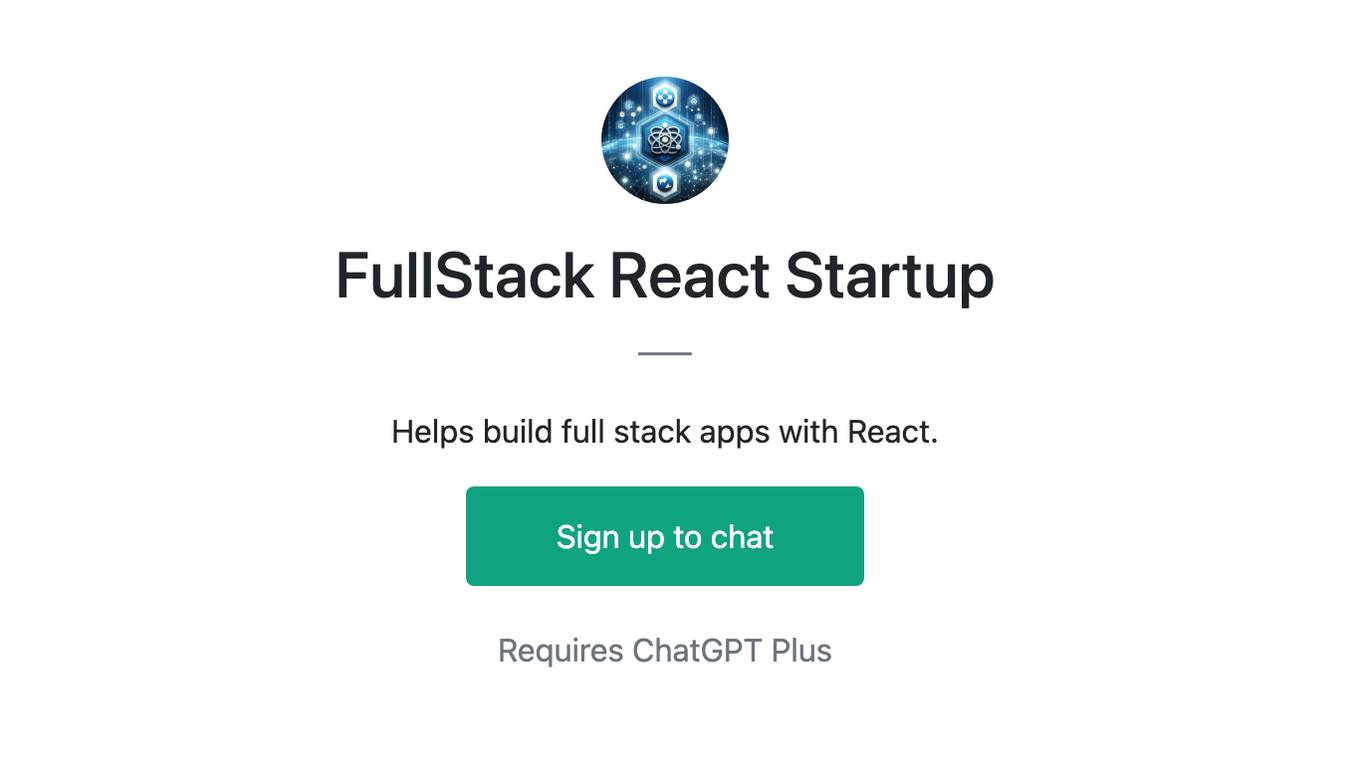Best AI tools for< Build Production App >
20 - AI tool Sites
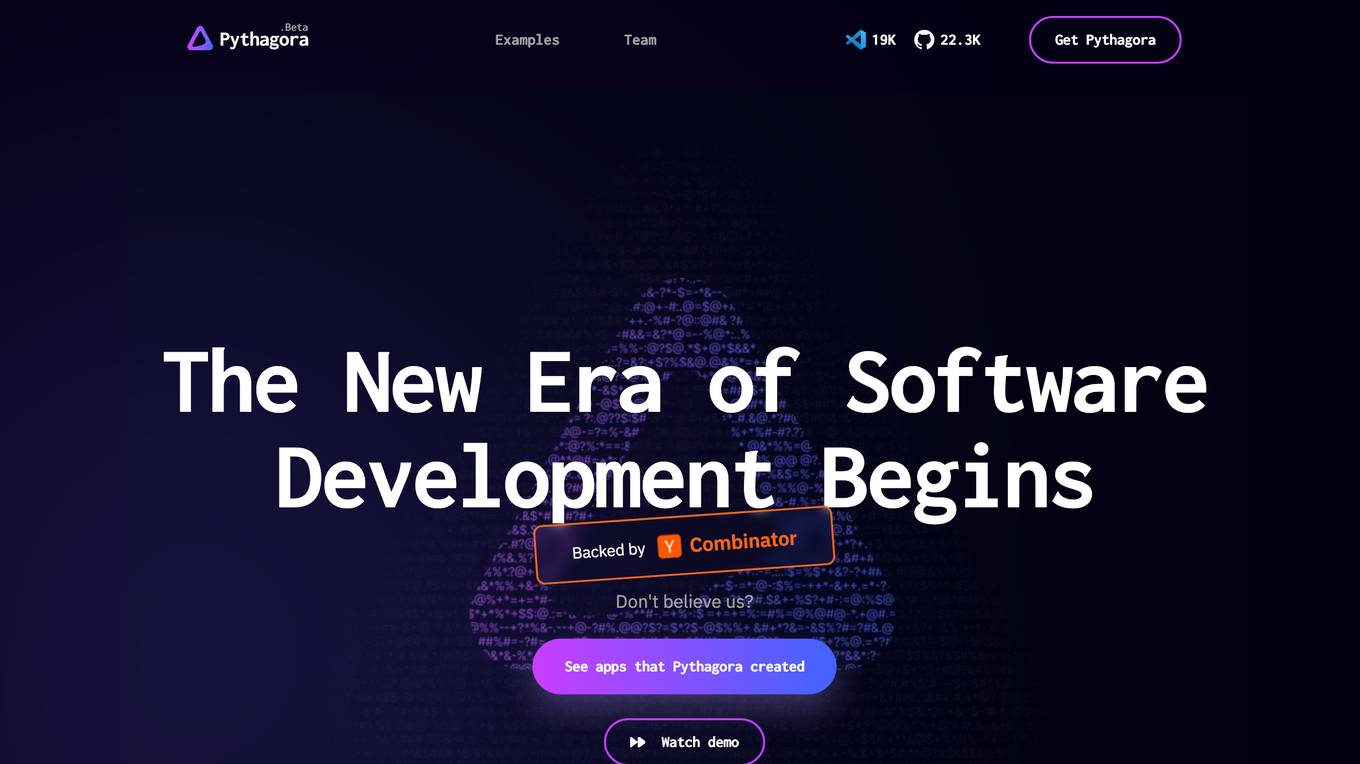
Pythagora
Pythagora is the world's first all-in-one AI development platform that allows users to build production apps quickly and efficiently. With Pythagora, users can go from prompt to production seamlessly, with frontend development in minutes and backend development in hours. The platform offers a complete technical stack, smart inline code review, one-click deployment, and full code ownership, making app development faster and smarter.
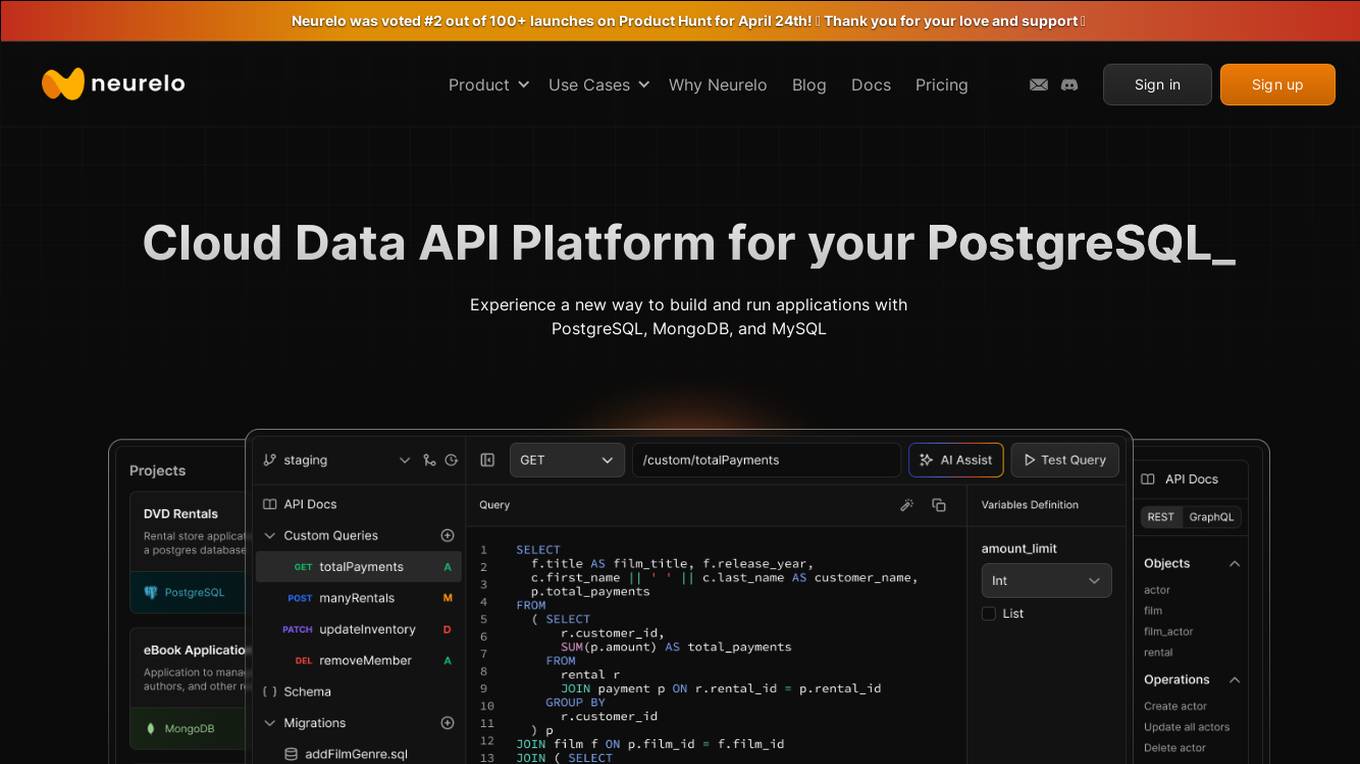
Neurelo
Neurelo is a cloud API platform that offers services for PostgreSQL, MongoDB, and MySQL. It provides features such as auto-generated APIs, custom query APIs with AI assistance, query observability, schema as code, and the ability to build full-stack applications in minutes. Neurelo aims to empower developers by simplifying database programming complexities and enhancing productivity. The platform leverages the power of cloud technology, APIs, and AI to offer a seamless and efficient way to build and run applications.

GPTConsole
GPTConsole is an AI-powered platform that helps developers build production-ready applications faster and more efficiently. Its AI agents can generate code for a variety of applications, including web applications, AI applications, and landing pages. GPTConsole also offers a range of features to help developers build and maintain their applications, including an AI agent that can learn your entire codebase and answer your questions, and a CLI tool for accessing agents directly from the command line.
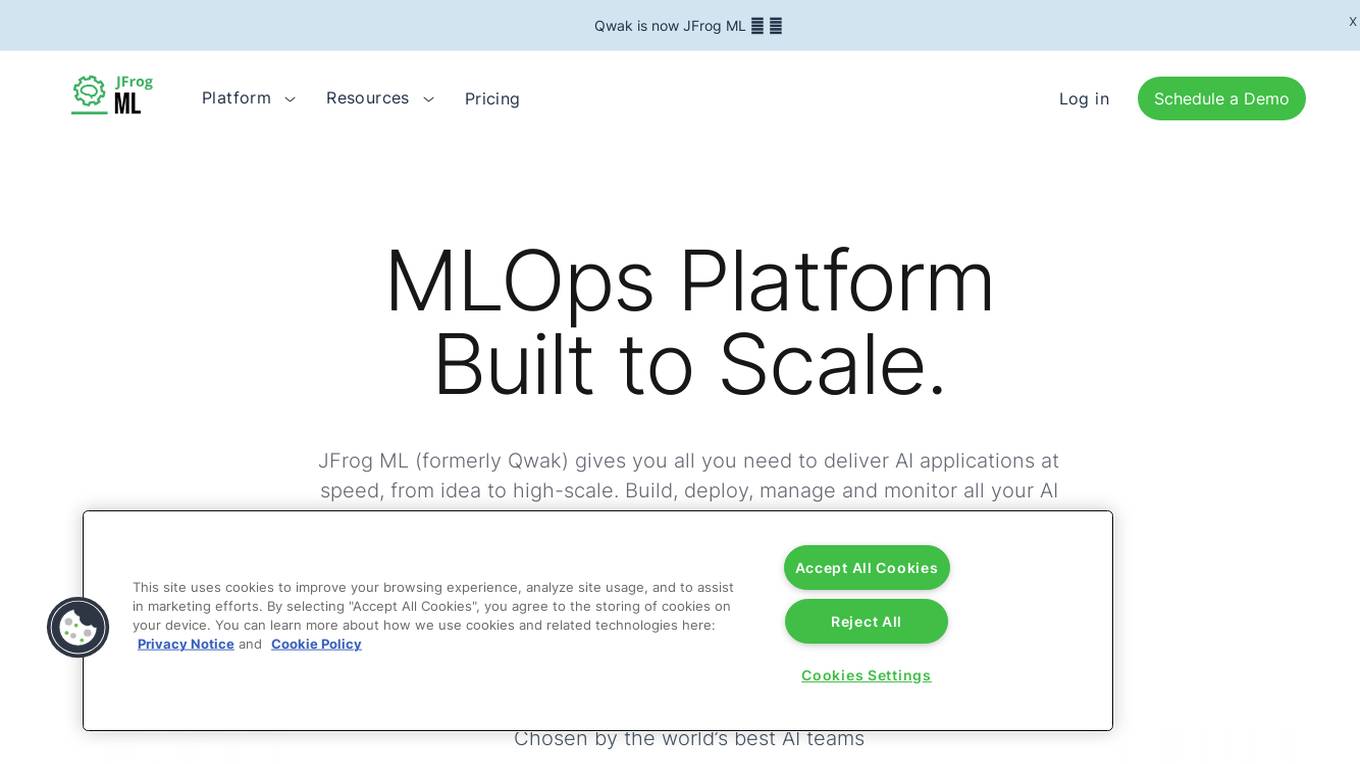
JFrog ML
JFrog ML is an AI platform designed to streamline AI development from prototype to production. It offers a unified MLOps platform to build, train, deploy, and manage AI workflows at scale. With features like Feature Store, LLMOps, and model monitoring, JFrog ML empowers AI teams to collaborate efficiently and optimize AI & ML models in production.
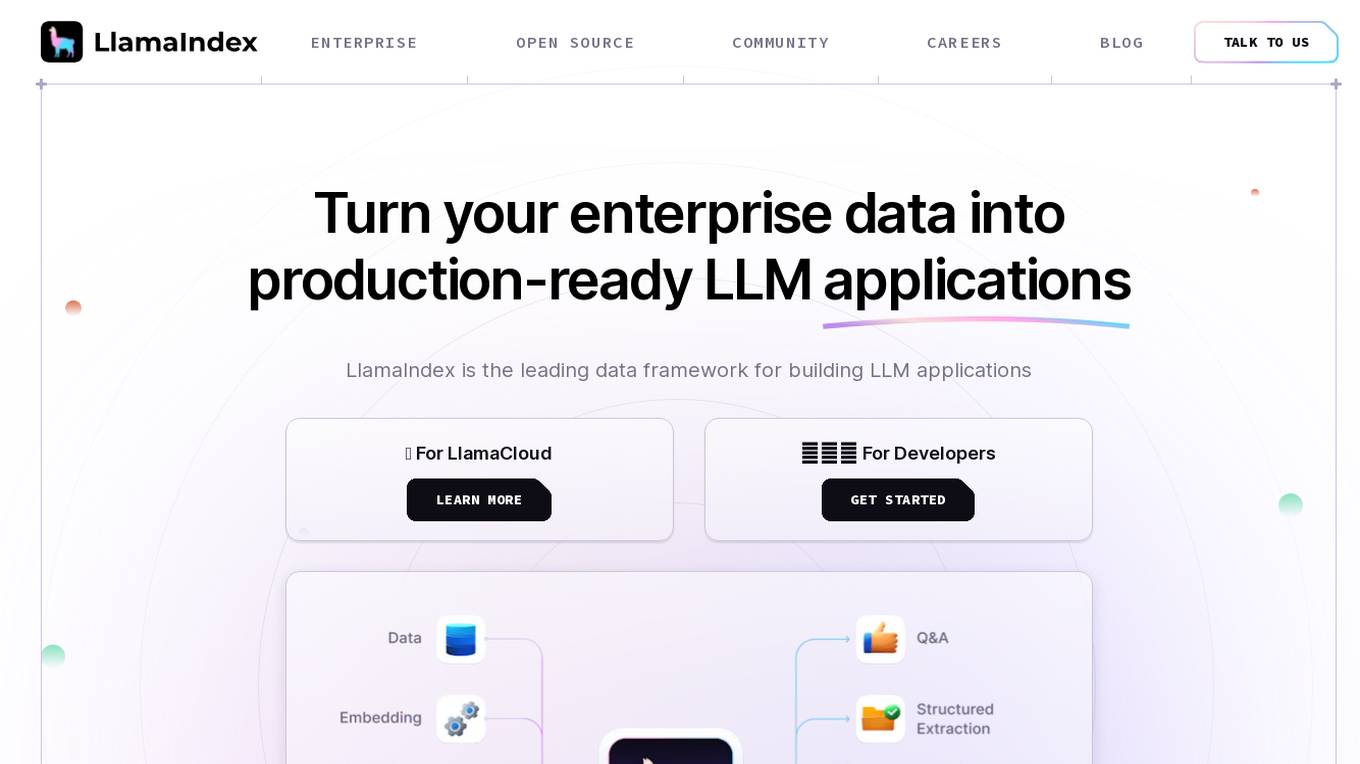
LlamaIndex
LlamaIndex is a leading data framework designed for building LLM (Large Language Model) applications. It allows enterprises to turn their data into production-ready applications by providing functionalities such as loading data from various sources, indexing data, orchestrating workflows, and evaluating application performance. The platform offers extensive documentation, community-contributed resources, and integration options to support developers in creating innovative LLM applications.
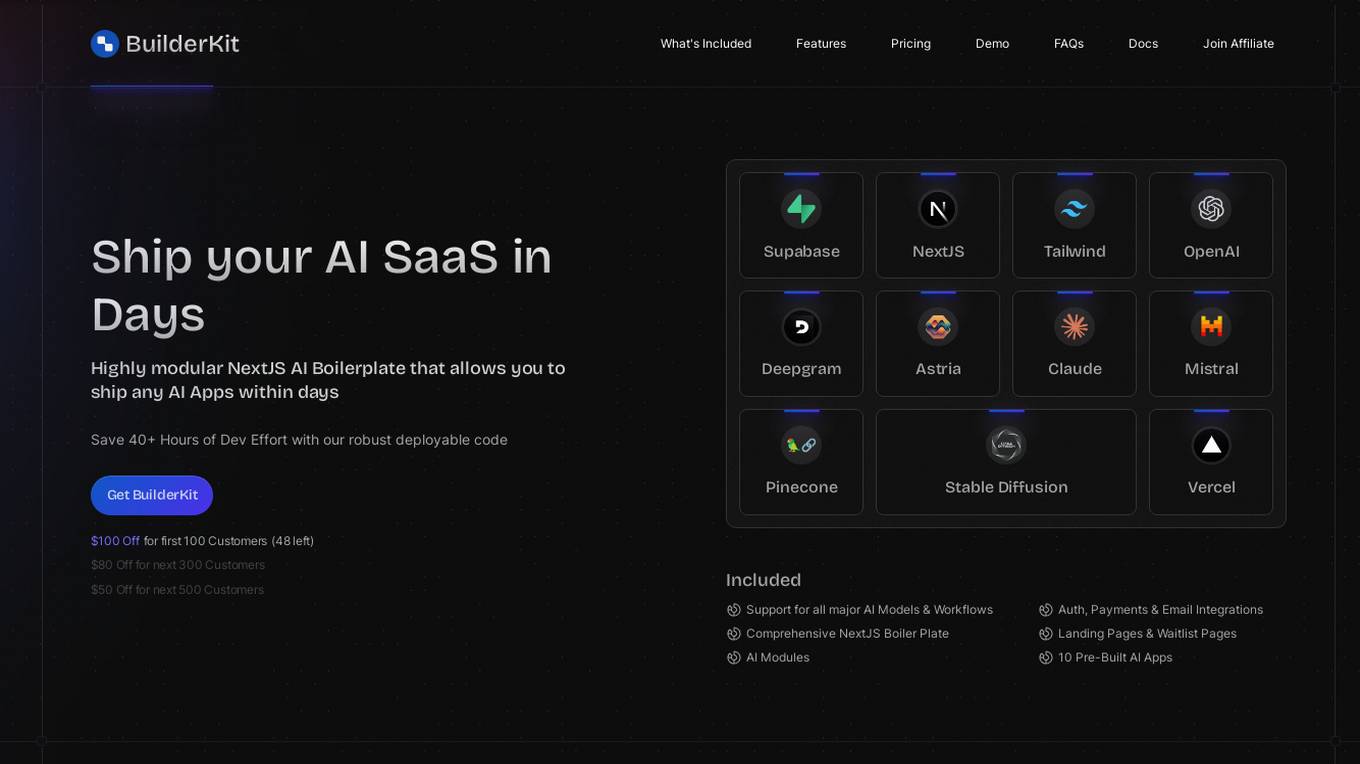
BuilderKit
BuilderKit is a highly modular NextJS AI Boilerplate that allows users to ship any AI Apps within days. It saves over 40 hours of development effort with its robust deployable code. The platform offers support for all major AI models and workflows, comprehensive NextJS boilerplate, AI modules for authentication, payments, and email integrations, landing pages, and waitlist pages. BuilderKit also provides pre-built AI apps loved by top builders, enabling users to build their AI products and generate revenue quickly.
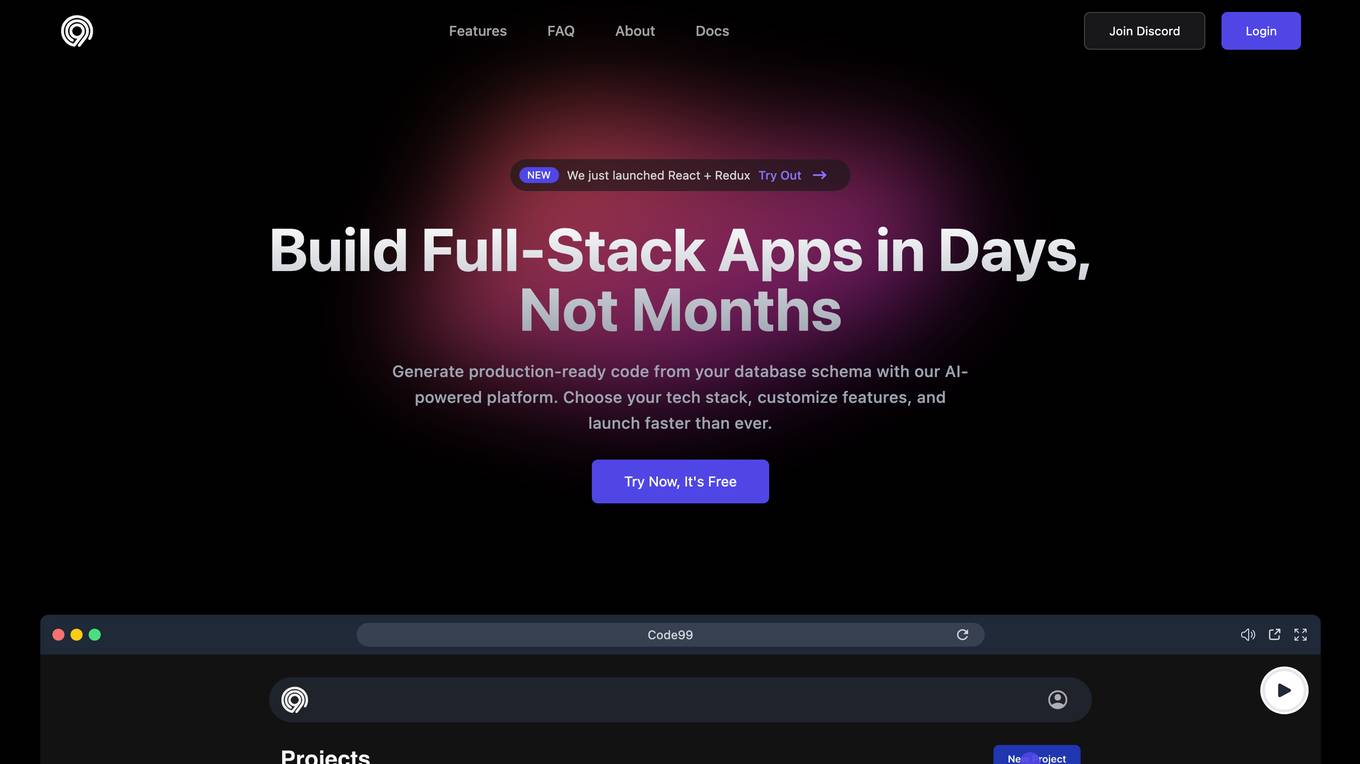
Code99
Code99 is an AI-powered platform designed to speed up the development process by providing instant boilerplate code generation. It allows users to customize their tech stack, streamline development, and launch projects faster. Ideal for startups, developers, and IT agencies looking to accelerate project timelines and improve productivity. The platform offers features such as authentication, database support, RESTful APIs, data validation, Swagger API documentation, email integration, state management, modern UI, clean code generation, and more. Users can generate production-ready apps in minutes, transform database schema into React or Nest.js apps, and unleash creativity through effortless editing and experimentation. Code99 aims to save time, avoid repetitive tasks, and help users focus on building their business effectively.

Myple
Myple is an AI application that enables users to build, scale, and secure AI applications with ease. It provides production-ready AI solutions tailored to individual needs, offering a seamless user experience. With support for multiple languages and frameworks, Myple simplifies the integration of AI through open-source SDKs. The platform features a clean interface, keyboard shortcuts for efficient navigation, and templates to kickstart AI projects. Additionally, Myple offers AI-powered tools like RAG chatbot for documentation, Gmail agent for email notifications, and AskFeynman for physics-related queries. Users can connect their favorite tools and services effortlessly, without any coding. Joining the beta program grants early access to new features and issue resolution prioritization.
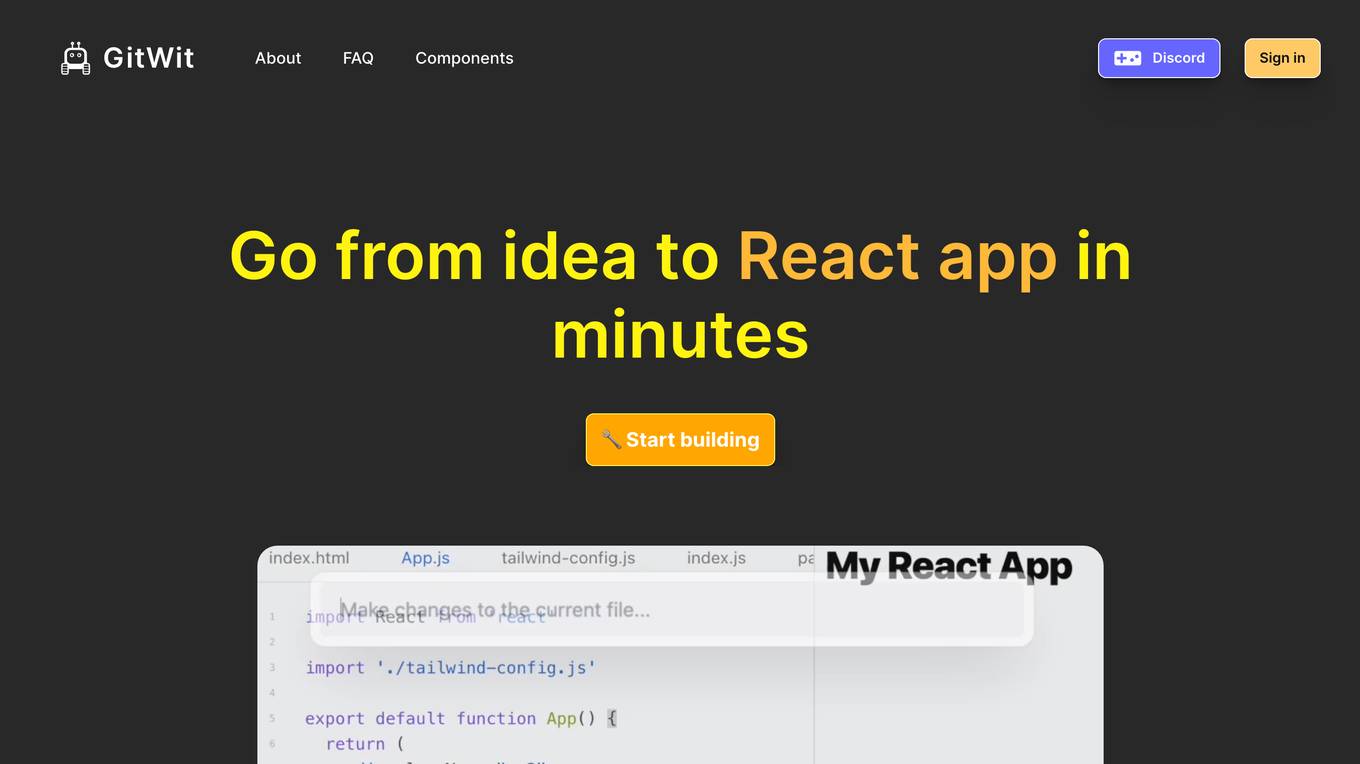
GitWit
GitWit is an online tool that helps you build web apps quickly and easily, even if you don't have any coding experience. With GitWit, you can create a React app in minutes, and you can use AI to augment your own coding skills. GitWit supports React, Tailwind, and NodeJS, and it has generated over 1000 projects to date. GitWit can help you build any type of web app, from simple landing pages to complex e-commerce stores.
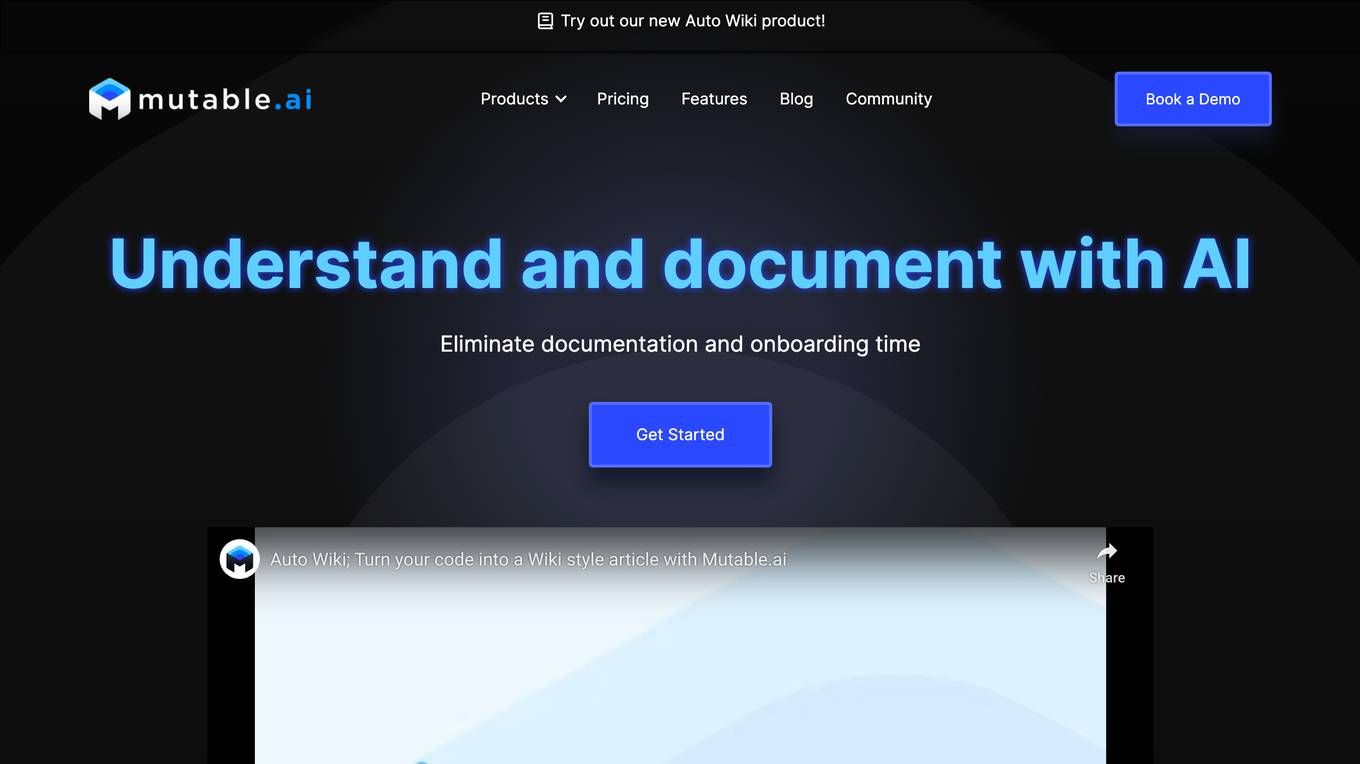
Mutable.ai
Mutable.ai is an AI tool that provides human quality assistance with codebases. It offers features such as creating Wikipedia-style documentation for code, generating wiki articles automatically, and enabling AI chat for extracting answers quickly. The application aims to enhance productivity and satisfaction for software engineers by leveraging AI advancements to revolutionize programming methods. The team behind Mutable.ai includes experts from various prestigious backgrounds, ensuring high-quality service and support.
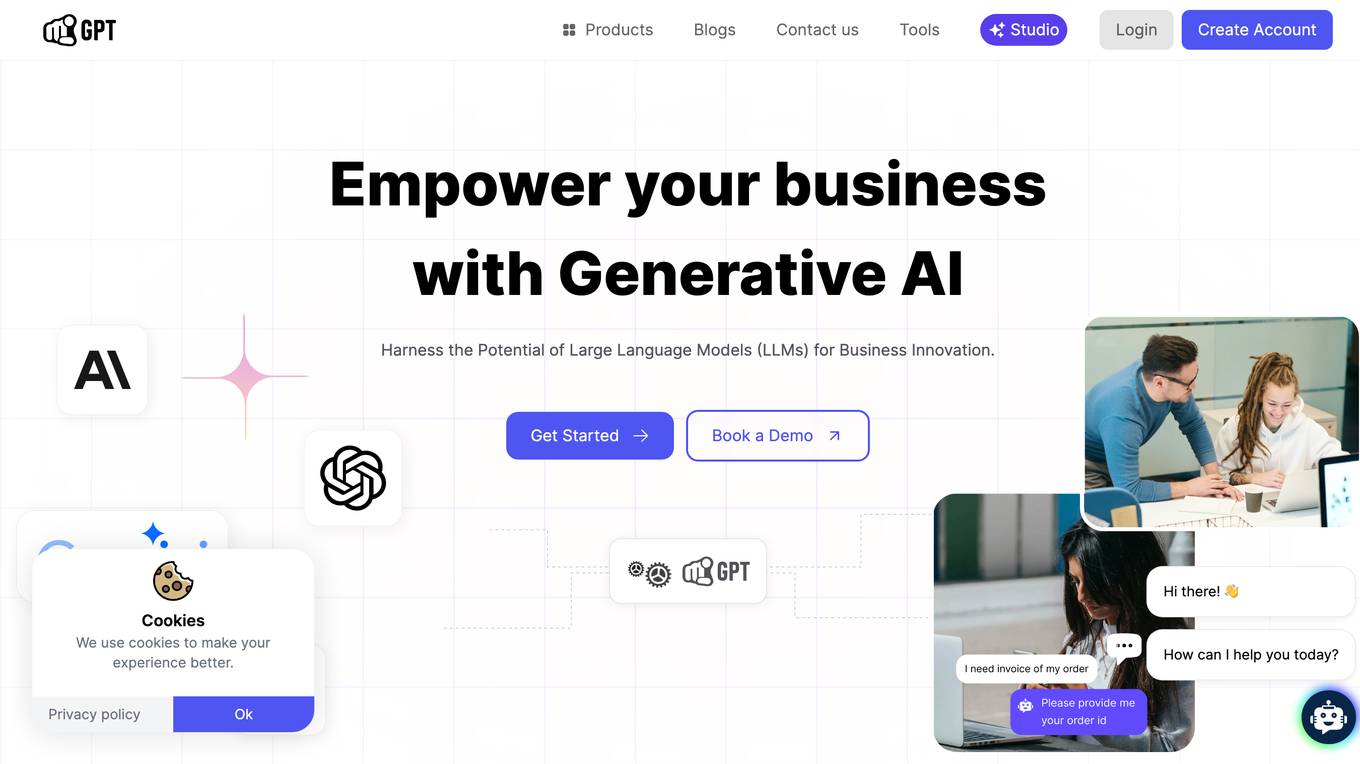
YourGPT
YourGPT is a suite of next-generation AI products designed to empower businesses with the potential of Large Language Models (LLMs). Its products include a no-code AI Chatbot solution for customer support and LLM Spark, a developer platform for building and deploying production-ready LLM applications. YourGPT prioritizes data security and is GDPR compliant, ensuring the privacy and protection of customer data. With over 2,000 satisfied customers, YourGPT has earned trust through its commitment to quality and customer satisfaction.
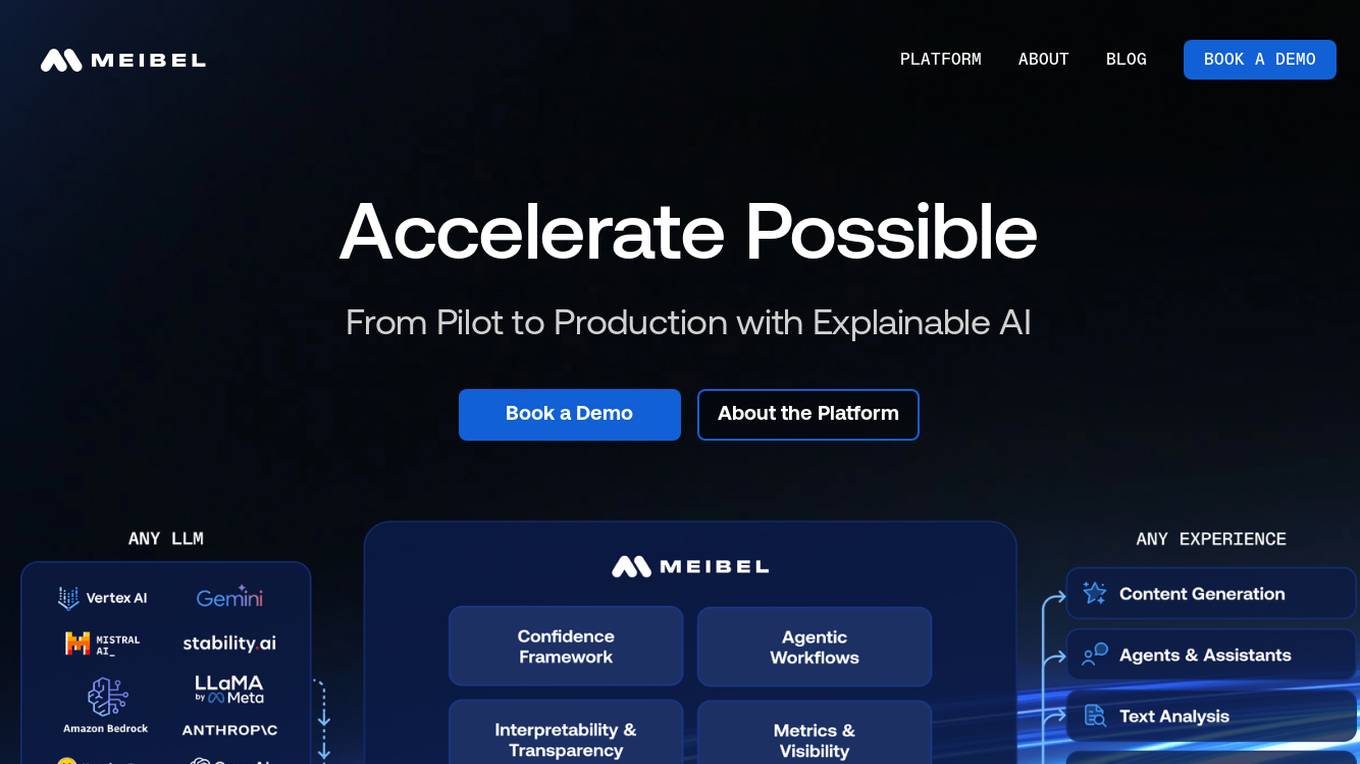
Meibel
Meibel is an AI platform that empowers product and engineering leaders to accelerate their generative AI vision from pilot to production with explainable AI. The platform provides complete visibility, control, and confidence to quickly build and deploy production-ready AI systems that deliver measurable business value. Meibel offers intuitive tools for AI development, seamless data integration, enterprise-ready security, measurable impact tracking, and a future-proof platform that evolves alongside AI technology.
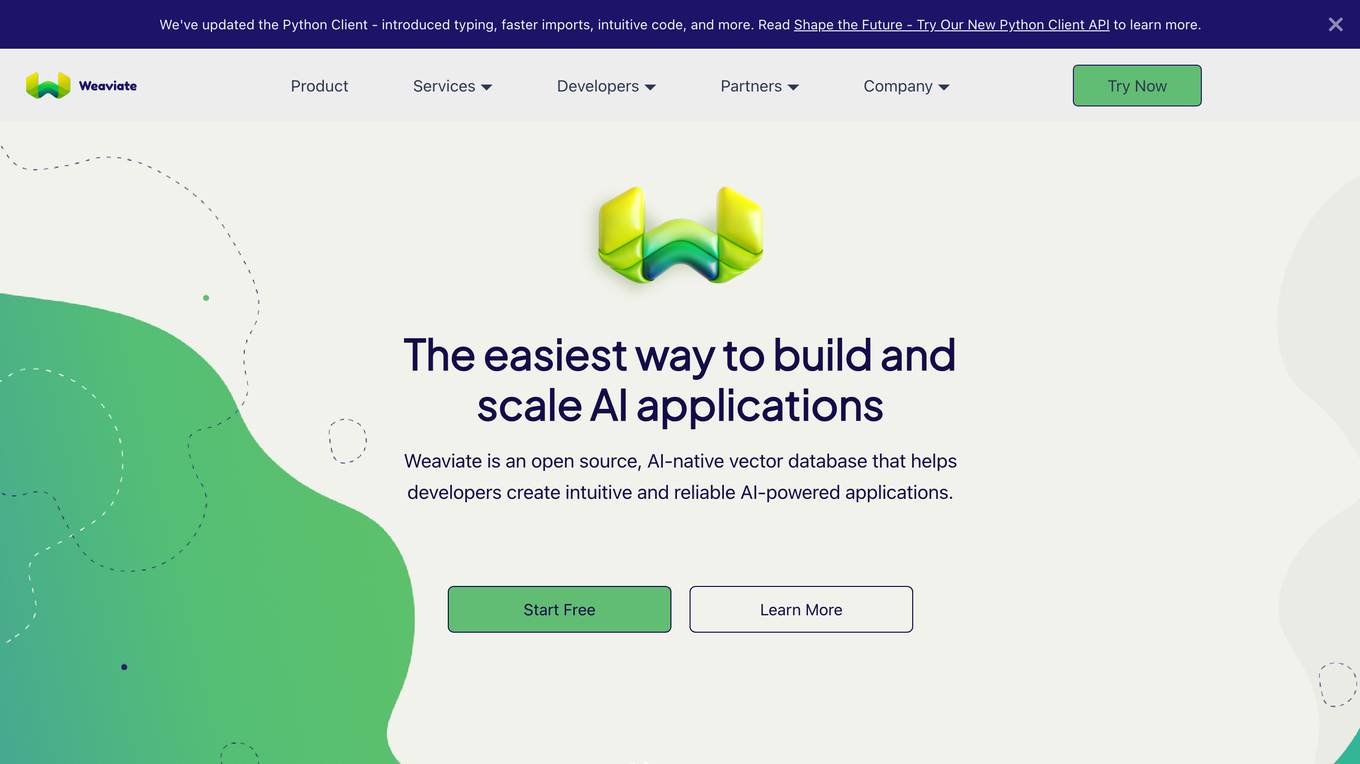
Weaviate
Weaviate is an AI-native database that developers love. It offers a feature-rich vector database trusted by AI innovators, empowering AI-native builders to create AI-powered search, retrieval augmented generation, and agentic AI applications. Weaviate simplifies the process of building production-ready AI applications by providing seamless model integration, pre-built database agents, and language-agnostic SDKs for easy development. With billion-scale architecture and enterprise-ready deployment options, Weaviate enables developers to scale seamlessly, deploy anywhere, and meet enterprise requirements. The platform is designed to help AI builders write less custom code, optimize costs, and build AI-native apps faster.
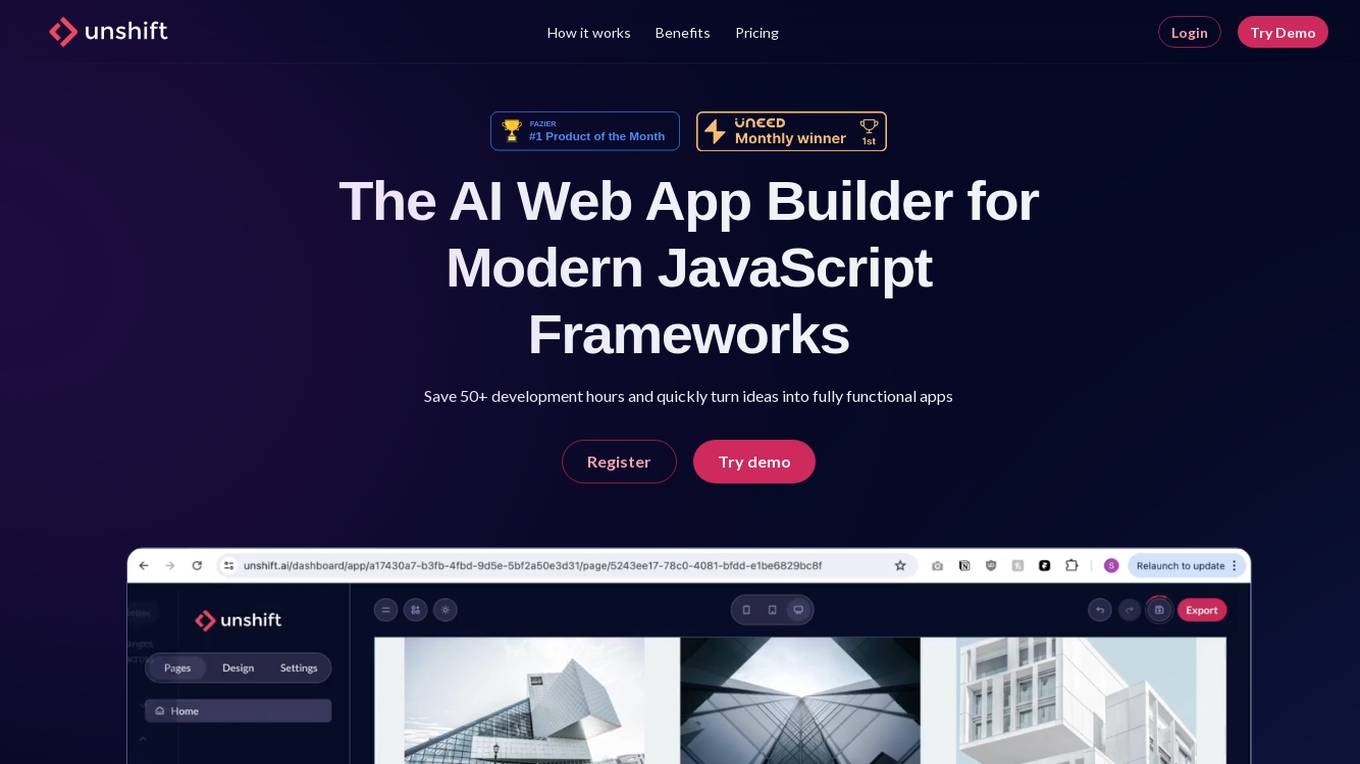
The Web App Builder
The Web App Builder by Unshift AI is an AI-powered platform designed to help users quickly and efficiently create fully functional web applications using modern JavaScript frameworks. With features like an advanced editor, support for various frameworks, and access to professionally written code, the platform streamlines the app development process and saves developers time. Users can easily customize design elements, manage content, and export their apps to different frameworks. The platform also offers AI-generated content, extensive component libraries, and a customizable design system to enhance app development. Overall, The Web App Builder is a comprehensive tool for building web applications with ease and efficiency.
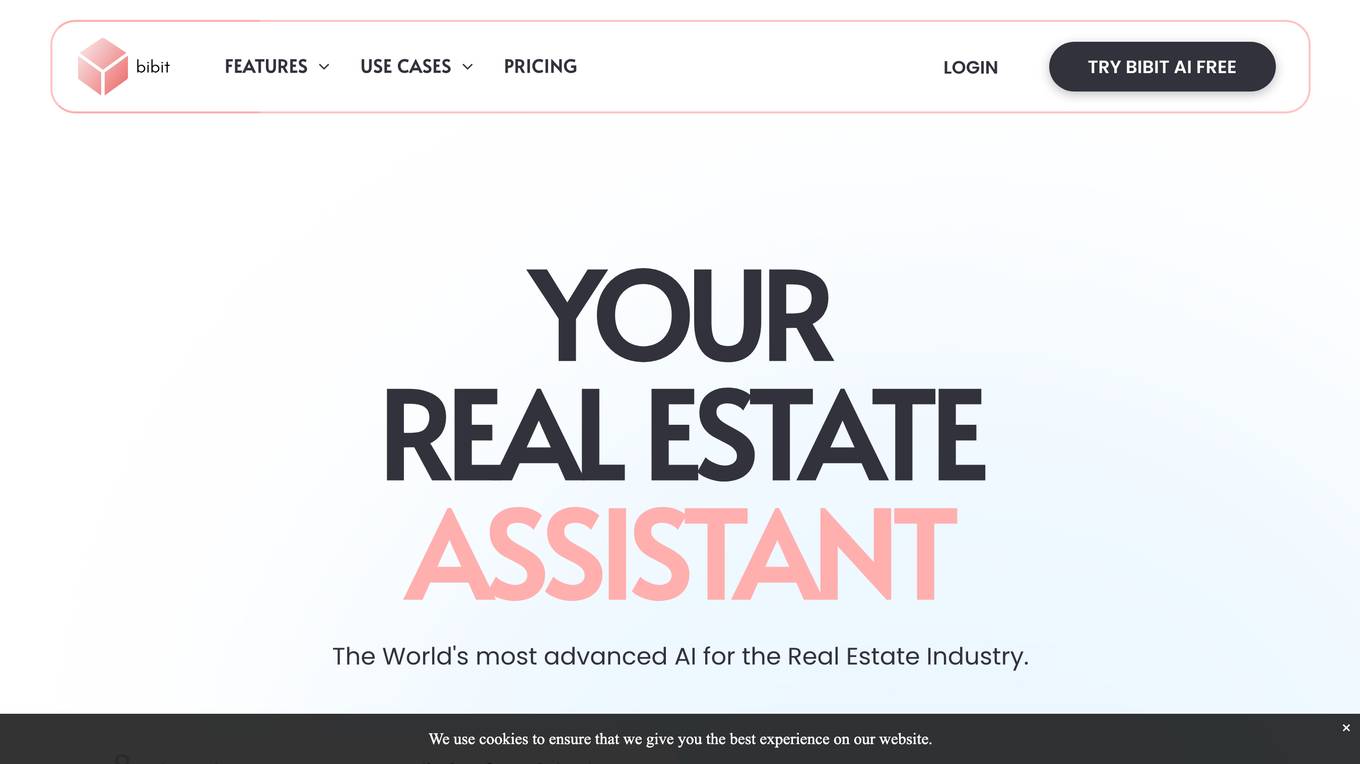
Bibit AI
Bibit AI is a real estate marketing AI designed to enhance the efficiency and effectiveness of real estate marketing and sales. It can help create listings, descriptions, and property content, and offers a host of other features. Bibit AI is the world's first AI for Real Estate. We are transforming the real estate industry by boosting efficiency and simplifying tasks like listing creation and content generation.
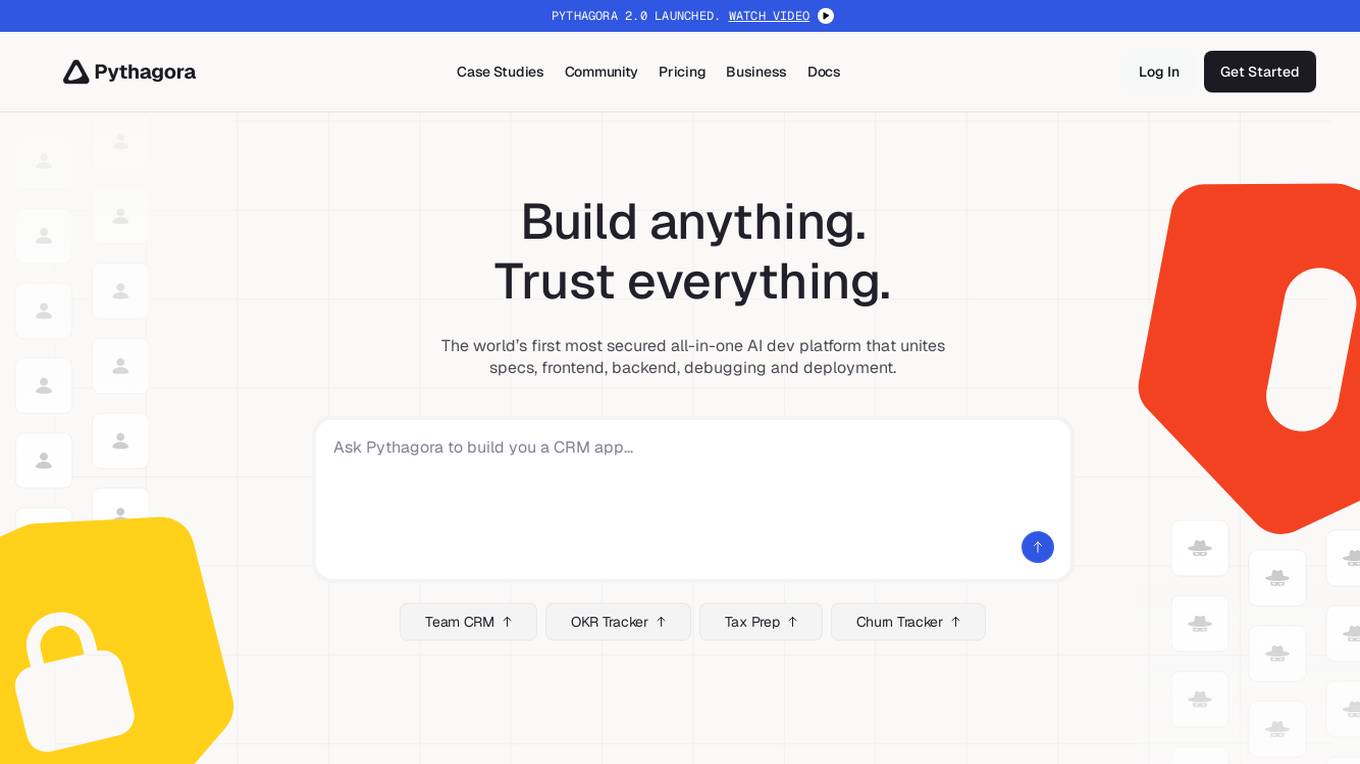
Pythagora
Pythagora is the world's first all-in-one AI development platform that offers a secure and comprehensive solution for building web applications. It combines frontend, backend, debugging, and deployment features in a single platform, enabling users to create apps without heavy coding requirements. Pythagora is powered by specialized AI agents and top-tier language models from OpenAI and Anthropic, providing users with tools for planning, writing, testing, and deploying full-stack web apps. The platform is designed to streamline the development process, offering enterprise-grade security, role-based authentication, and transparent control over projects.
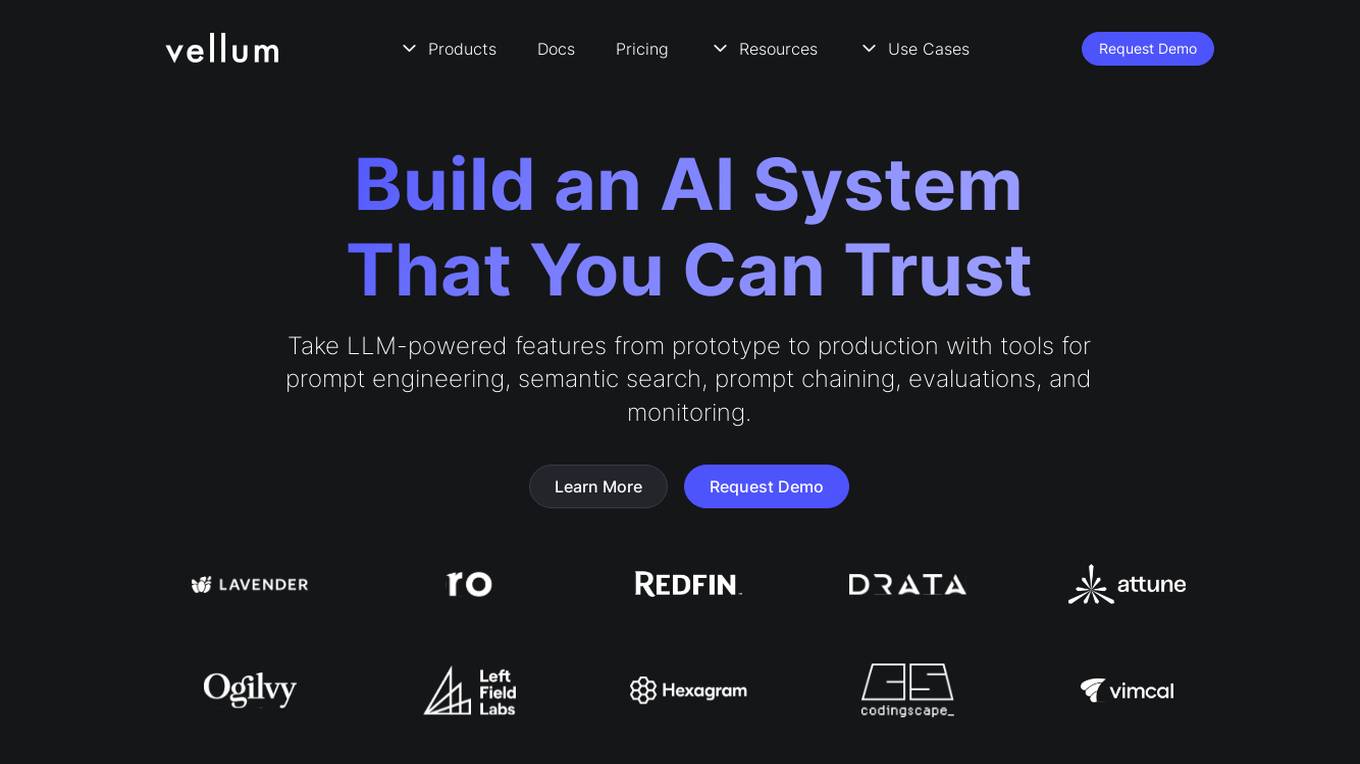
Vellum AI
Vellum AI is an AI platform that supports using Microsoft Azure hosted OpenAI models. It offers tools for prompt engineering, semantic search, prompt chaining, evaluations, and monitoring. Vellum enables users to build AI systems with features like workflow automation, document analysis, fine-tuning, Q&A over documents, intent classification, summarization, vector search, chatbots, blog generation, sentiment analysis, and more. The platform is backed by top VCs and founders of well-known companies, providing a complete solution for building LLM-powered applications.
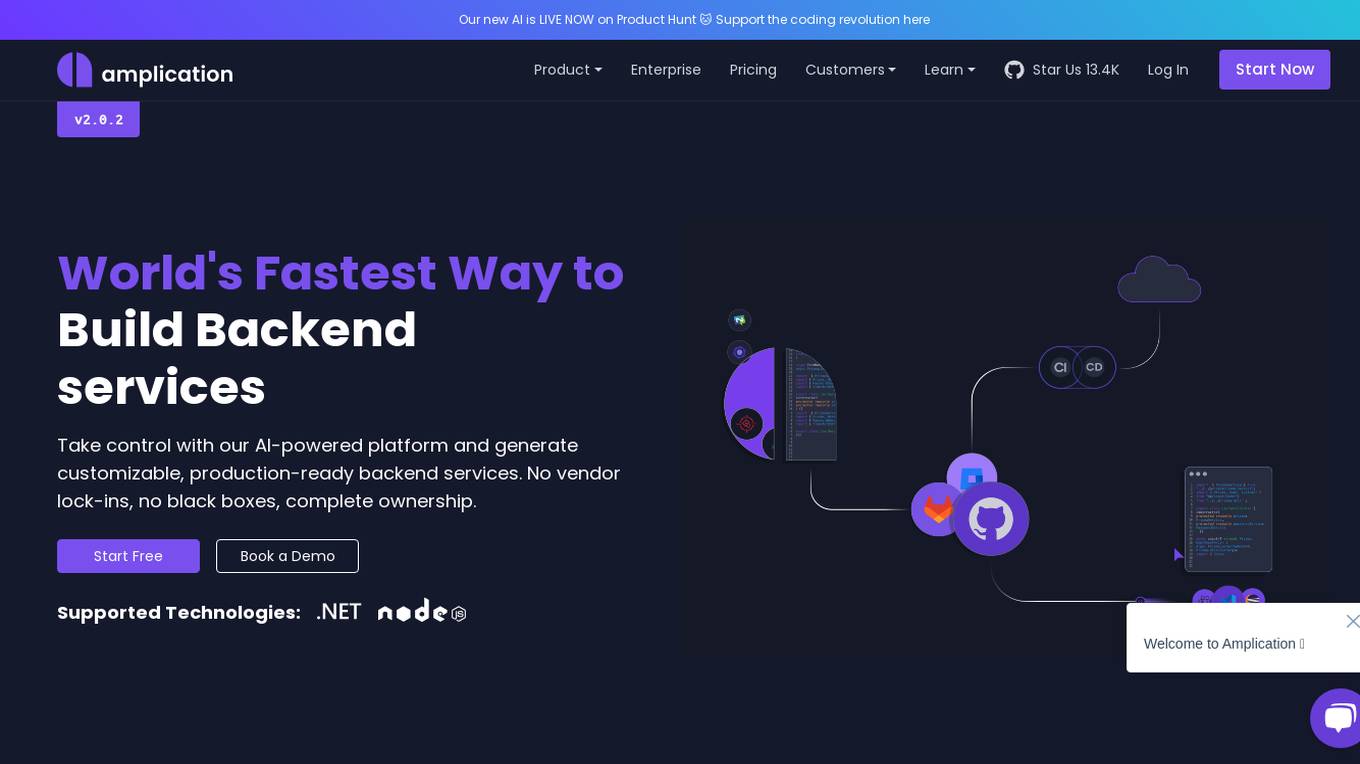
Amplication
Amplication is an AI-powered platform for .NET and Node.js app development, offering the world's fastest way to build backend services. It empowers developers by providing customizable, production-ready backend services without vendor lock-ins. Users can define data models, extend and customize with plugins, generate boilerplate code, and modify the generated code freely. The platform supports role-based access control, microservices architecture, continuous Git sync, and automated deployment. Amplication is SOC-2 certified, ensuring data security and compliance.
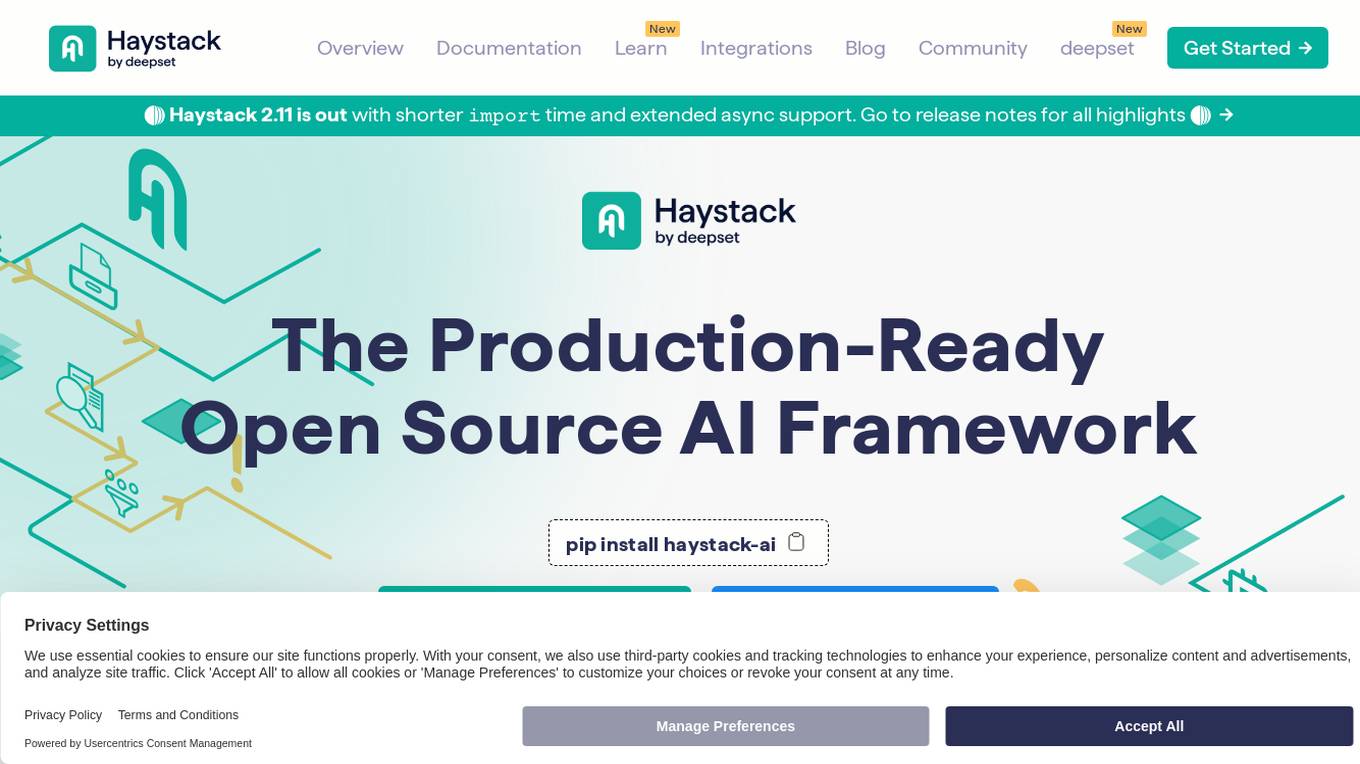
Haystack
Haystack is a production-ready open-source AI framework designed to facilitate building AI applications. It offers a flexible components and pipelines architecture, allowing users to customize and build applications according to their specific requirements. With partnerships with leading LLM providers and AI tools, Haystack provides freedom of choice for users. The framework is built for production, with fully serializable pipelines, logging, monitoring integrations, and deployment guides for full-scale deployments on various platforms. Users can build Haystack apps faster using deepset Studio, a platform for drag-and-drop construction of pipelines, testing, debugging, and sharing prototypes.
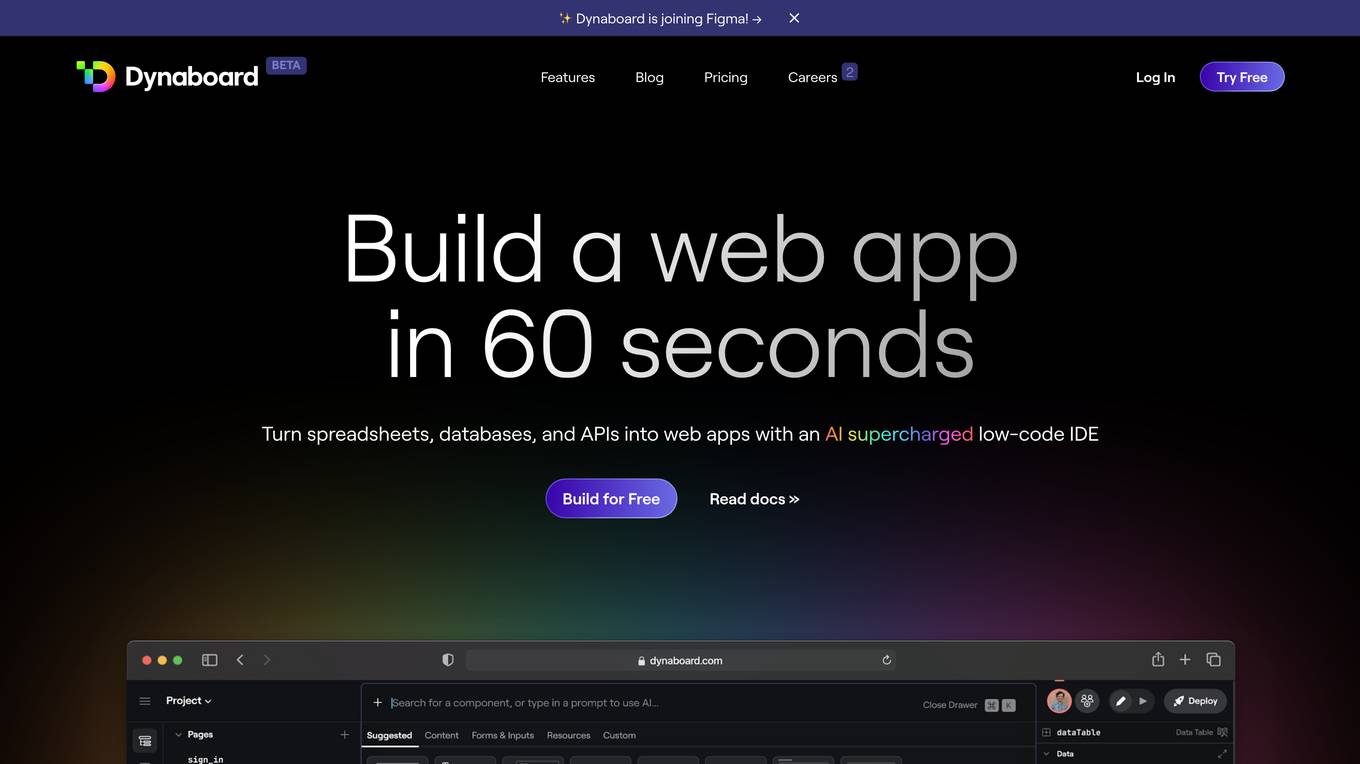
Dynaboard
Dynaboard is a collaborative low-code IDE for developers that allows users to build web apps in minutes using a drag-and-drop builder, a flexible code-first UI framework, and the power of generative AI. With Dynaboard, users can connect to popular databases, SaaS apps, or any API with GraphQL or REST endpoints, and secure their apps using any existing OIDC compliant provider. Dynaboard also offers unlimited editors for team collaboration, multi-environment deployment support, automatic versioning, and easy roll-backs for production-grade confidence.
1 - Open Source AI Tools
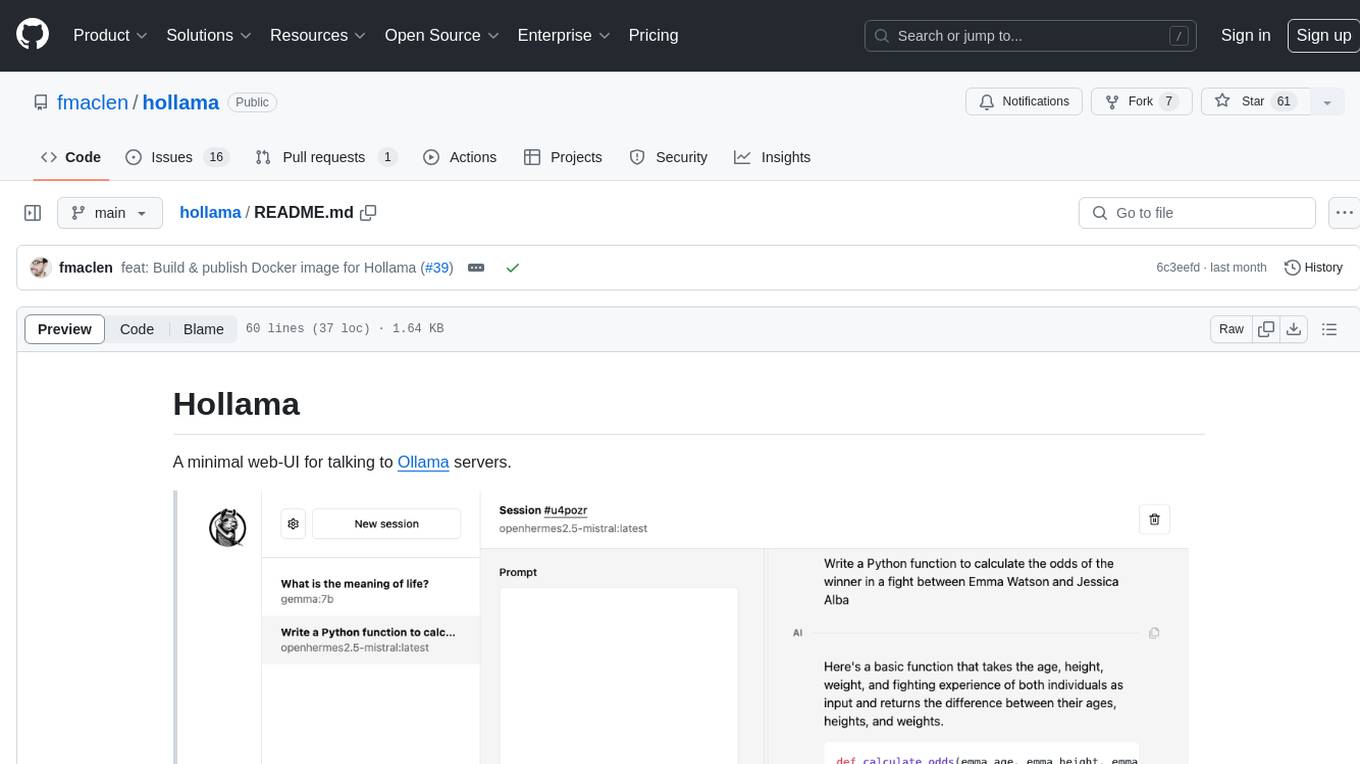
hollama
Hollama is a minimal web-UI tool designed for interacting with Ollama servers. It features large prompt fields, streams completions, ability to copy completions as raw text, Markdown parsing with syntax highlighting, and saves sessions/context in the browser's localStorage. Users can access the latest version of Hollama at https://hollama.fernando.is without sign up, and data is stored locally on the browser. The tool can also be run as a Docker image by executing a specific command. Developers can connect to an Ollama server by updating the ORIGIN settings. Hollama facilitates easy development by providing instructions to set up the environment, install dependencies, and start a development server. Building a production version of the app is straightforward with a single command, and deployment may require installing an adapter for the target environment.
20 - OpenAI Gpts
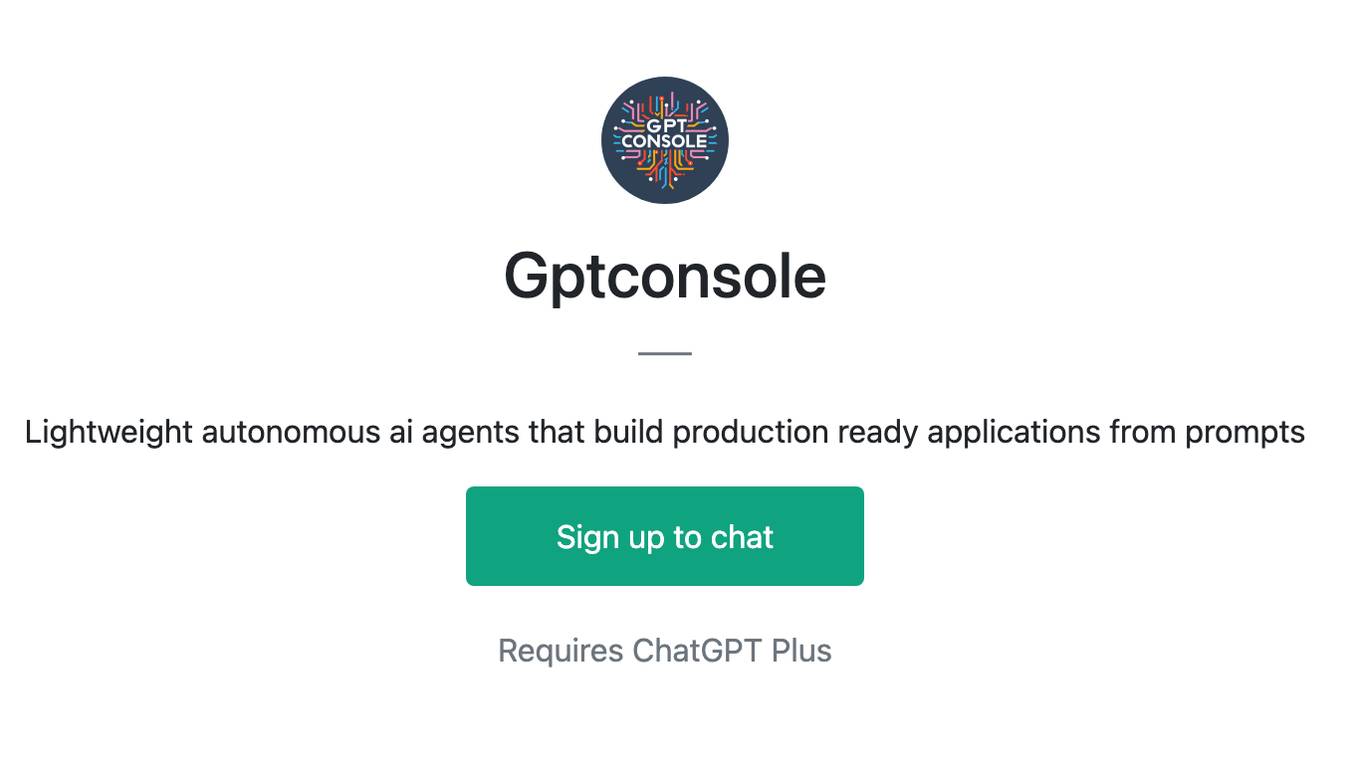
Gptconsole
Lightweight autonomous ai agents that build production ready applications from prompts
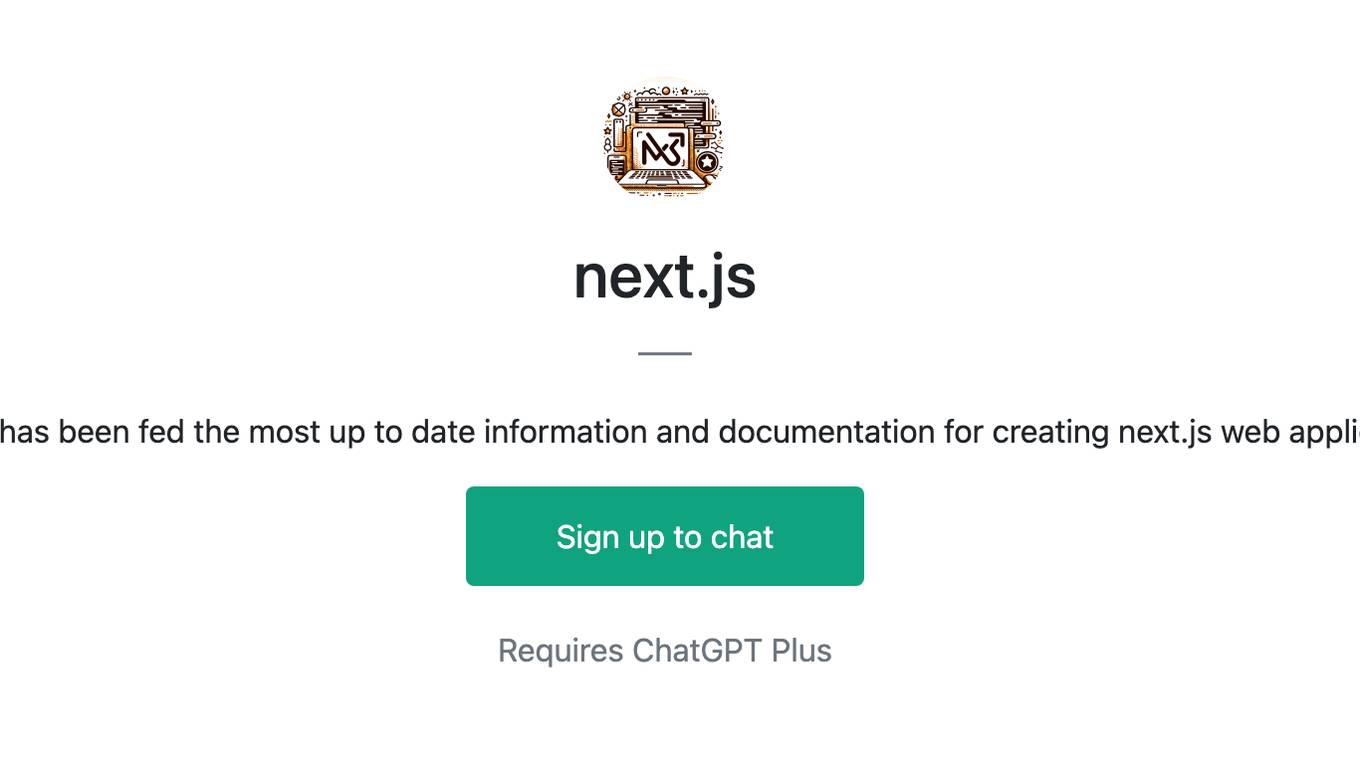
next.js
This GPT has been fed the most up to date information and documentation for creating next.js web applications.

👑 Data Privacy for Insurance Companies 👑
Insurance providers collect and process personal health, financial, and property information, making it crucial to implement comprehensive data protection strategies.
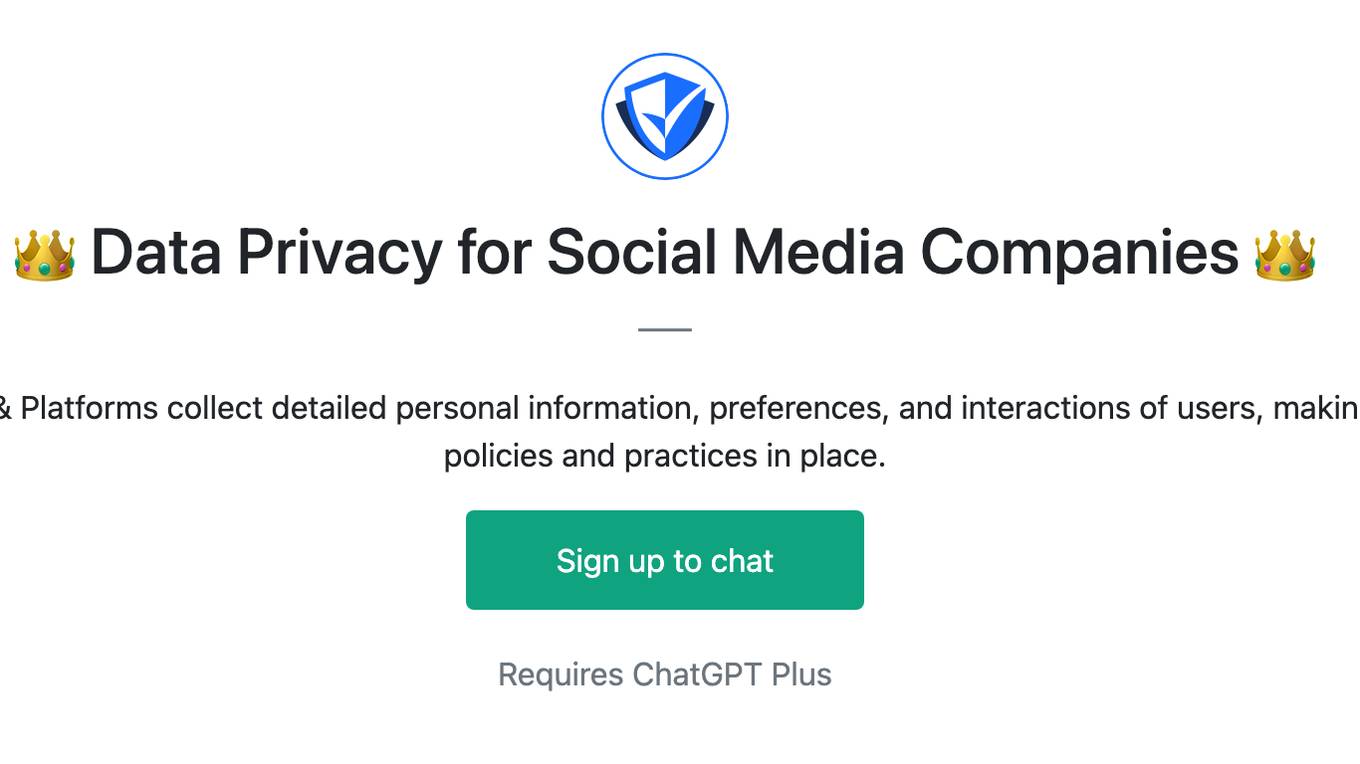
👑 Data Privacy for Social Media Companies 👑
Data Privacy for Social Media Companies & Platforms collect detailed personal information, preferences, and interactions of users, making it essential to have strong data privacy policies and practices in place.
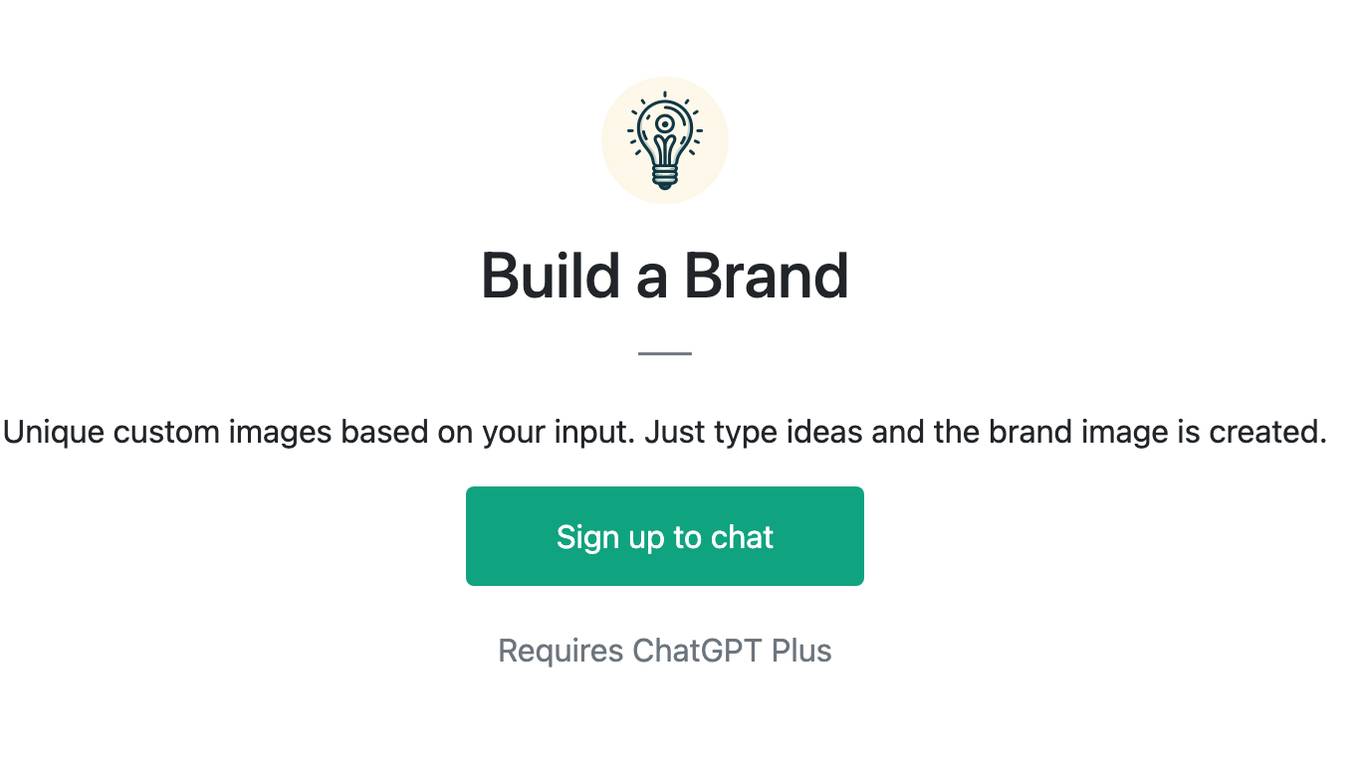
Build a Brand
Unique custom images based on your input. Just type ideas and the brand image is created.
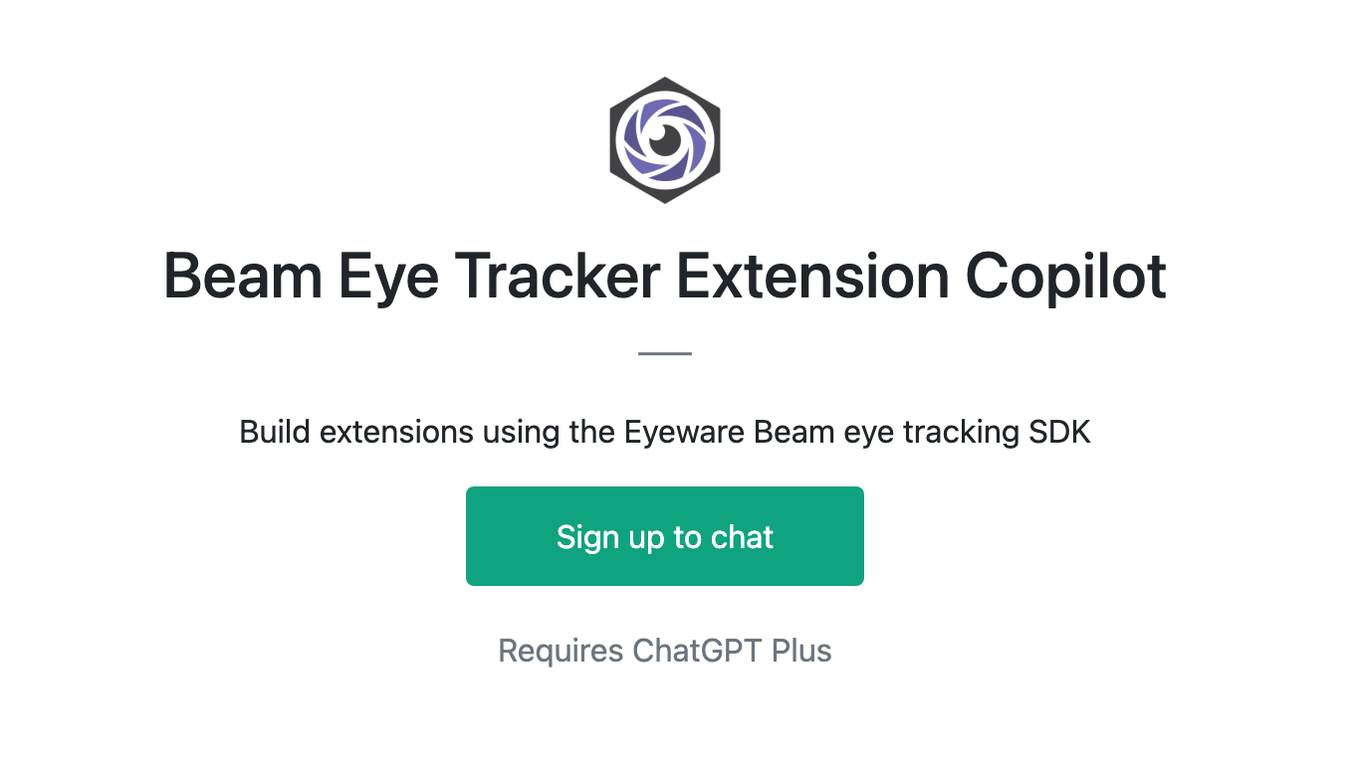
Beam Eye Tracker Extension Copilot
Build extensions using the Eyeware Beam eye tracking SDK

Business Model Canvas Strategist
Business Model Canvas Creator - Build and evaluate your business model

League Champion Builder GPT
Build your own League of Legends Style Champion with Abilities, Back Story and Splash Art
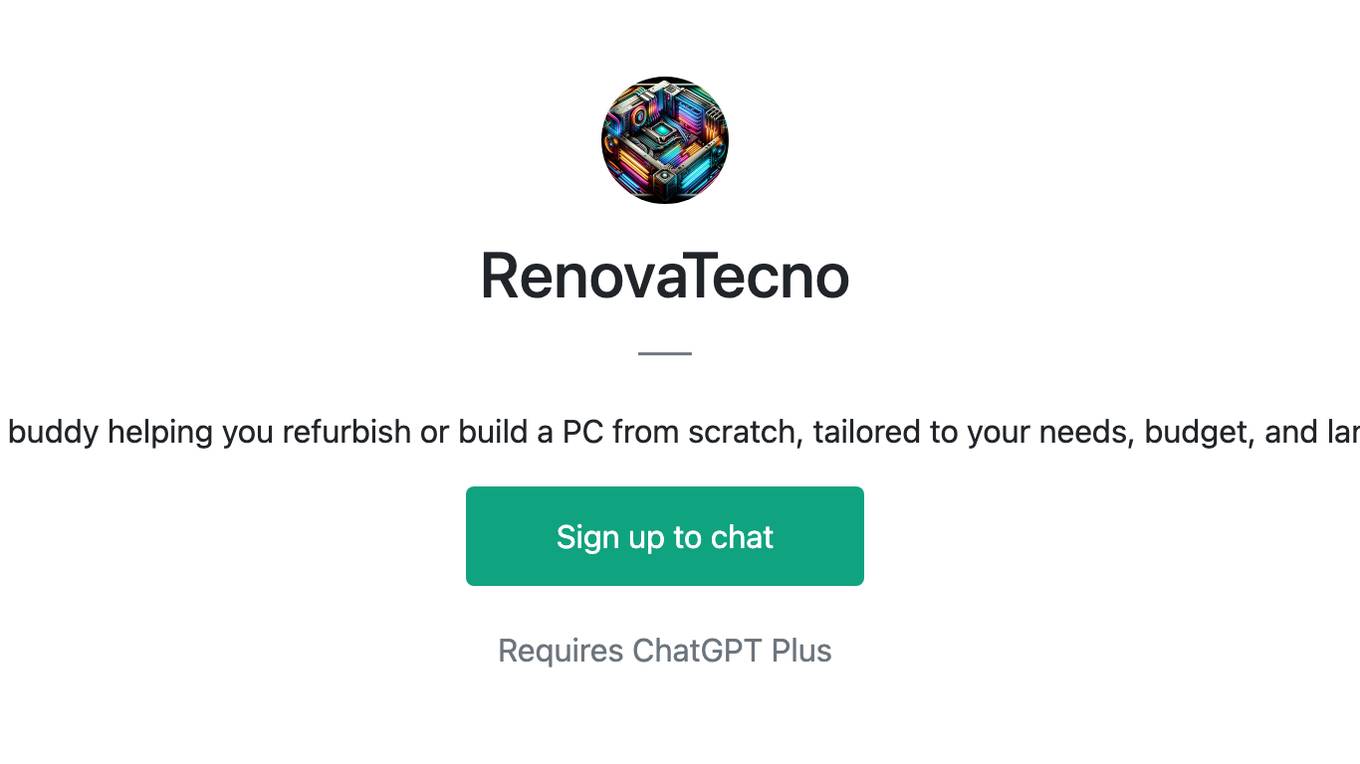
RenovaTecno
Your tech buddy helping you refurbish or build a PC from scratch, tailored to your needs, budget, and language.
